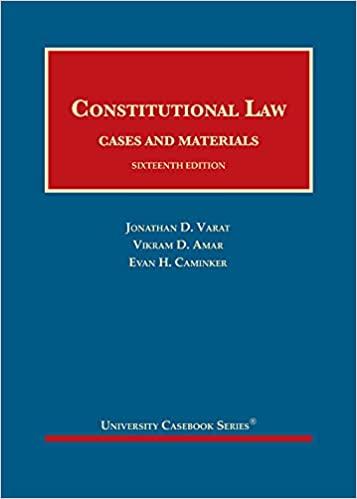Question
By definition, a minimum wage is the lowest wage that employers may legally pay to their workers (UC Davis, 2018). This wage rate across the
By definition, a minimum wage is the lowest wage that employers may legally pay to their workers (UC Davis, 2018). This wage rate across the United States is regulated by the Fair Labor Standards Act (FLSA), which establishes the minimum hourly wage, and can also amend this amount. Since establishment in 1938, the minimum wage has been raised on twenty two separate occasions, with the most recent change being in 2007, making the required minimum wage $7.25 per hour (Congressional Research Service, 2021). Changes in this amount follow changes in productivity, as well as changes in inflation rates. Many states, however, choose to pay a higher minimum wage than the FLSA requires. For example, New Jersey has raised their minimum wage requirement to $12 per hour for most workers (Department of Labor and Workforce Development, 2021). Because the FLSA was established in a time of economic hardship, there has been a debate in recent years over whether or not a minimum wage should still be required in the United States. Based on my research, while I found that there are compelling arguments for both sides of the debate, I believe that there should be a minimum wage law present in the United States.
By having a minimum wage present, businesses are prevented from taking advantage of the workers who desperately need a job, no matter what it pays. This floor on wages eliminates "labor conditions detrimental to the maintenance of the minimum standards of living necessary for health, efficiency, and well being of workers" (Hoagland & Jacobs, 2019, p 2). By having a minimum wage law in place, it is ensured that all workers are paid at least a liveable wage for their labor, and desperate workers are not unfairly taken advantage of. A minimum wage also can help to stimulate the economy in a positive way. By having this standard, there is more money available for people to purchase products, not just food, which in turn stimulates product production (Ford, 2019). This would then lead to an increase in the demand for workers, which would allow them to earn more money to put back into the economy, thus starting over this cycle. Having a minimum wage also helps to reduce turnover, which is also beneficial to the employers (Congressional Research Services).
On the other hand, it is argued that minimum wage laws are an intrusion by the government into the free market place (Driscoll & Grant, 2019). It could also be argued that a higher minimum wage might result in lower profits for small businesses, such as restaurants, which could result in layoffs or unemployment among the younger workers (Driscoll & Grant, 2019). Inflation might also increase as the minimum wage continues to increase. Costs for goods and services will need to go up as employers have to pay their workers more money (Driscoll & Grant, 2019). Hoagland & Jacobs (2019) explain how teaching low-skilled workers new, marketable skills might be more beneficial than simply raising their wages, which is an interesting point to think about when considering the opposing side of this argument.
Critical comment on text above. 200-300 words.
Step by Step Solution
There are 3 Steps involved in it
Step: 1

Get Instant Access to Expert-Tailored Solutions
See step-by-step solutions with expert insights and AI powered tools for academic success
Step: 2

Step: 3

Ace Your Homework with AI
Get the answers you need in no time with our AI-driven, step-by-step assistance
Get Started


